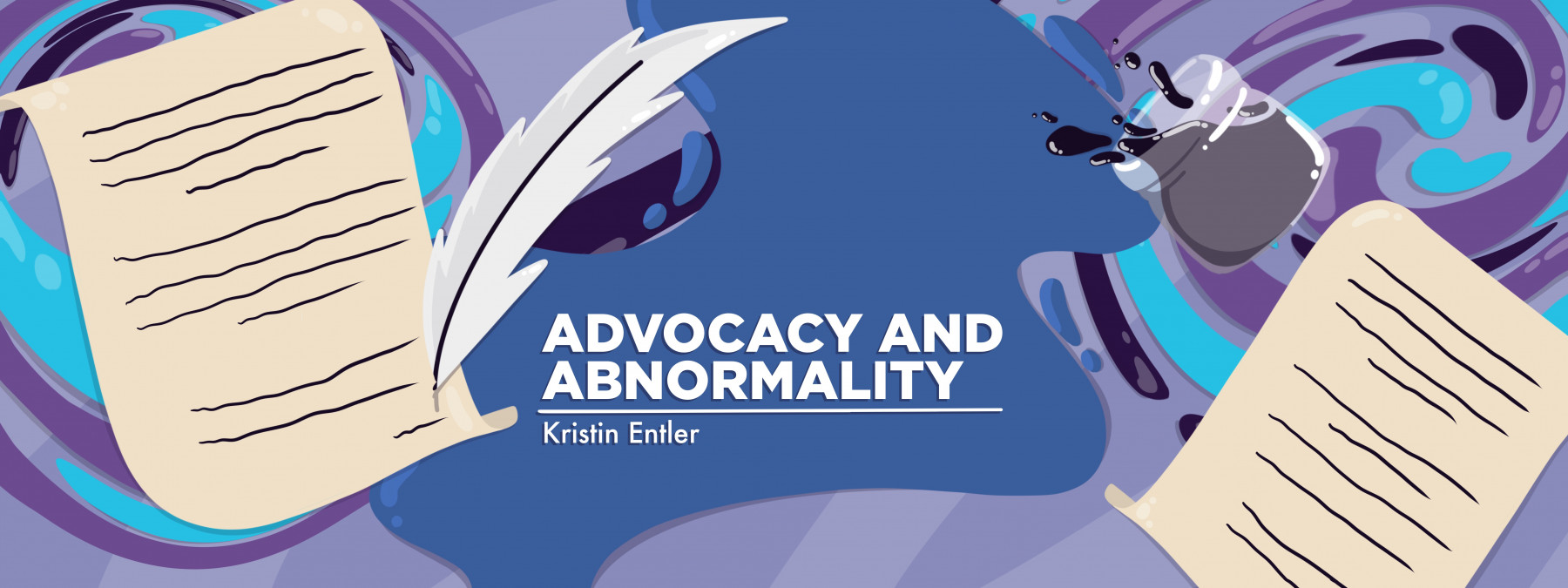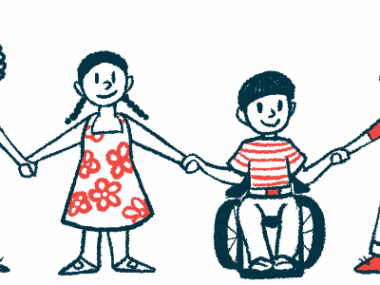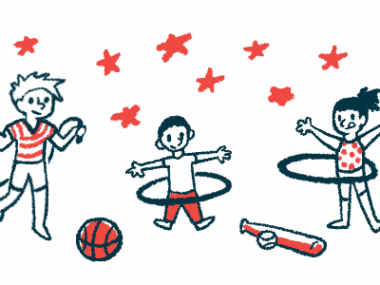Person-first Language Doesn’t Always Matter
Written by |

“Do people with cystic fibrosis really call themselves ‘CFers’?” a friend once asked.
“Some do, some don’t.”
I told her about the shorthand terms I’ve seen used in the community, such as “cysters” and “fibros.”
Personally, I’ve always appreciated those monikers for their playfulness, which among many things reflects how close the online community of patients are, despite having to remain physically distanced. But ultimately, I don’t like referring to myself as either of these things; they’re a little too entrenched in gendered language for me personally.
“But what about person-first language?” she asked.
We’d learned about people-first language, as it’s termed, in psychology classes as an undergraduate. It refers to the more newly established idea that saying “a disabled person” is more dehumanizing than saying “a person with a disability.” In short, the person should be the subject of the sentence, not the label that describes them.
The rhetoric implies that person matters before the disability label, which is of course true, and I think there’s something to it. But ultimately, it isn’t my biggest priority when it comes to addressing the language we use about disability and disabled people.
Language exists, in part, so we can communicate with each other. But language is imperfect, flawed, and inadequate.
When I use people-first language, I also recognize a slew of other prepositional affixations besides “with” apply to my body. I do not just live with cystic fibrosis and diabetes and osteopenia and others; I also live around and beside and inside and beyond these diseases, too, just like we all live as some other preposition in every label we ascribe to ourselves: mother, student, dog owner.
Like all labels, “disability” and diagnoses are ghosts that cohabitate within more truth and nuance than a simple prepositional phrase is capable of holding.
For instance, a few weeks out from my first semester of graduate school back in 2018, I found myself in a private room behind the ER. Waiting for my parents to arrive from where they were, over an hour’s drive away, I found it hard to believe that just a few days earlier, I was walking around the skyscrapers and museums of Richmond, Virginia, on an impromptu trip to visit a high school friend.
The drive from central Alabama had been long, but my health was stable on the medication Orkambi (lumacaftor/ivacaftor). This newfound stability in my health sparked some phase full of the kind of wanderlust that often comes with being young enough to withstand a sleepless, winding drive through the wingtip of Tennessee, and past miles of peanut fields and billboards for no reason besides being able.
Except, as my body is always sure to remind me, I wasn’t able.
As is often the case with progressive diseases, cystic fibrosis cycles in and out of various states of wellness. Often it’s like gravity pulling me down a steep decline riddled with speed bumps, all with unreliable brakes. Except my body both has unreliable brakes and supplies the speed bumps. Chronic illness is complicated like that.
A couple days of rest after I made it home, my health declined rapidly. By the time the on-call pulmonologists called back saying I needed to head toward the ER, I was already waiting for a friend who lived nearby to arrive with her boyfriend to help me pack a bag.
I was so fatigued and short of breath that my friend’s boyfriend had to carry me down the stairs of my apartment building — thankfully only one short flight.
Within minutes, an ER nurse was rushing me back, spouting off stats and numbers in the hurried and forceful way they do when they’re trying to hide from you how bad you are. I was sicker than I’d ever been. Yet when I got to the hospital and the nurse asked me to rate my pain, I asked for oxygen and told told them 8/10.
Then something happened, and the nurse couldn’t hide his fear. When someone from the back tried to tell him they were full, the nurse who had just moments ago taken my vitals and promised me he was going to take care of me said words that I still remember.
“She’s septic with an underlying chronic lung disorder and does not have the option of going back to the waiting room. Either you find room or I will be leaving my post and coming back there with her and making room.”
In my fog, I wondered why he didn’t just say a more concise, “This chronically disabled CFer is septic.” Of course, there’s several professional reasons this isn’t what he said. Since that day, though, the point remains: When it came down to it, I didn’t care how he referred to my illness. I only cared that he saw me as the person I was, and in that moment, I was a person who needed help.
In hindsight, I concede that I probably should’ve called 911 to chariot me to the hospital. But I’m not here today to talk about the various financial burdens of ambulance rides and America’s insurance system. Suffice it to say, calling an emergency service didn’t feel like a suitable option.
I don’t know what happened on the trip that got me sick: if I overdid it with the long drive and extensive walking, if the spirit of Edgar Allan Poe haunted me home after I visited the museum, or (most likely) if I picked up some cold or flu virus along the way. I also don’t know what would’ve happened without the kindness of my friend and her boyfriend, who showed up exactly when I needed them, or without the advocacy of the ER nurse who fiercely protected me beyond the minimum requirements of his job.
I do know I’m beyond grateful for everyone who showed up for me that day, and all the days since. I also know that day I was unequivocally in my cystic fibrosis. When I felt too weak to make it to the front door of my 800-square-foot apartment, I was not with or alongside or from CF. I was indistinguishable from it.
There is an understandable desire to look away from that level of loss of self. My body was functioning on such a survival level that if you had asked me what I was or what I loved most in that moment, what made me me, I only would’ve answered asking for help.
And yet my friend told me later that she played Michael Bublé — the singer I return to in every devastating moment in my life, whose voice has some magical ability to ground me and make me feel safe — in the car for me while her boyfriend, who is now her husband, drove. She told me she caught me mouthing the words, my eyes closed and my senses dizzy, unaware I was even doing it.
Our self is more than any singular term or preposition can appropriately link us to or with. I don’t have a preference for how I’m referred to. I’m too busy trying to simply be.
Note: Cystic Fibrosis News Today is strictly a news and information website about the disease. It does not provide medical advice, diagnosis, or treatment. This content is not intended to be a substitute for professional medical advice, diagnosis, or treatment. Always seek the advice of your physician or other qualified health provider with any questions you may have regarding a medical condition. Never disregard professional medical advice or delay in seeking it because of something you have read on this website. The opinions expressed in this column are not those of Cystic Fibrosis News Today, or its parent company, Bionews, and are intended to spark discussion about issues pertaining to cystic fibrosis.








Paul & Debbie
I fully agree with you, Kristin. I could never find the thrill or importance in people first language. Anyone can of course have his or her own choice in that, and that is fine. For me, I couldn't care less how people address me. Mostly, they address me with my name, which is fine, and I don't even identify with that really. It's just words anyway. I don't feel identified with any of my bodily functions or problems in those.
On the forum there were several topics about this in the past, like https://cysticfibrosisnewstoday.com/forums/forums/topic/lets-talk-about-disability-language/
Indeed our self is much more than the language we speak or are addressed with. Our Being is who we really are, and this is beyond language or the concepts of the mind. I dare suggest that the situation that you describe as "a loss of self", where your body was just hanging on in survival mode, was actually closer to your real Self than you ever were. For there was a degree of absence of the mind at that moment that also held a sort of pure consciousness, even feeling sick and almost dying. In that pure consciousness you intuitively reacted to the music. Some people find a lot of pure being and wisdom in near-death experiences that way. When the mind retreats, Self shines.
By the way, we love Michael Bublé also! This voice, this sound - incredibly soothing. No wonder you intuitively reacted to this, even while almost unconscious. Or especially when almost unconscious.
Traci Thomas
For those of us living with HIV, people-first language makes a huge difference. For the past 40 years, people living with HIV were referred to and sometimes still are called "HIV infected patients".
The Denver Principles, written in 1983, called for the use of people-first language. We are only patients part of the time (when we see our providers), the rest of the time we are simply people. We are also much more than our diagnosis. Intersectionality helps to describe the different roles we play in society, the different labels used to describe people, and I for one am tired of being called "infected". It does something to my inner soul. Internal stigma and stigma from society impact people's ability to get tested for HIV, remain healthy, and live a quality life.
The different terms used to describe me "HIV infected homeless schizophrenic addict"
No
I am a person living with complex biomedical and behavioral health challenges and I deserve respect.